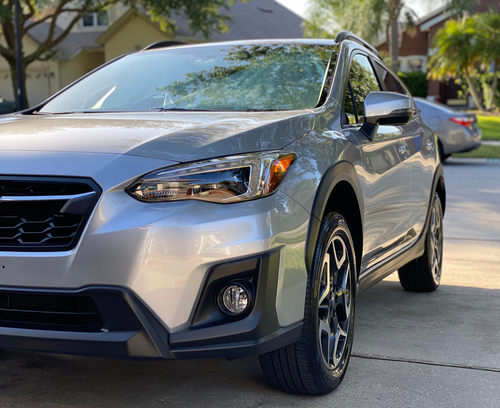
You’ve found the car of your dreams. It drives great, it looks amazing! But now you have to go through one of the worst rituals a consumer will ever experience: the dealership finance department.
Many people will sign anything just to get out of there – that’s what the dealership is counting on. But it doesn’t have to be that way.
In this two-part series, we arm you with insider information that can save you hundreds or thousands of dollars at this point.
What is a warranty?
A car warranty is basically insurance. You pay a specific amount of money up front to avoid unpredictable costs in the future.
How does that work? It’s all about actuarial losses. What is the cost to the insurer to fix a large number of cars like yours, on average? That sets the basic rates – and then the insurance company adds additional amounts to pay for operating expenses and profit. Then the selling dealership adds a lot more profit, but we’ll explore that in Part 2 of this series next week.
You’ll get a contract that outlines the terms of coverage for repair or replacement of certain parts or systems of the vehicle, how you file claims, and how much you will pay out of pocket when applicable.
While a warranty can provide peace of mind and protect a consumer from unexpected repair costs, it also comes with its own set of pros and cons.
In this first post, we explore some of the the advantages and disadvantages of car warranties.
Pros of Car Warranties
Peace of Mind
Some consumers find a sense of security knowing that certain parts or systems of their vehicle are covered. They don’t have to think about it or do any additional budgeting. They just drop their vehicle off with an authorized repair facility, the repairs are completed, and then they go about their lives.
Financial Protection
Car repairs can be expensive. Need a new electric steering unit? $3,500. Transmission? $8,000. New engine? $12,000. And these are for common passenger cars like Fords and Volkswagens, not small-volume sports or luxury cars.
A warranty lets you pay a fixed amount up front, or on a monthly payment plan. You are still the one paying for predictable repairs, you just pay for them over time instead of all at once. And you do also get protection against catastrophically expensive major repairs that can happen to a small percentage of vehicles.
Resale Value
Cars with warranties can be worth more at resale. For all the same reasons you might want a warranty yourself, already having one can be attractive to prospective buyers.
Cons of Car Warranties
Cost
One of the biggest downsides of a car warranty is the cost. The price of a warranty can vary greatly depending on the make and model of the car, as well as its length and coverage. And if you’re paying cash, you’ll be paying thousands more up front. If you finance the warranty, you can spread out the cost over time – but now you’re paying interest on the warranty just like you are for the car itself.
Limited Coverage
Not all parts or systems of a car are covered by a warranty. Certain items, such as tires, brakes, and wiper blades are considered normal wear items and are typically excluded from coverage. In addition, there may be limitations on the amount of coverage for each covered component.
Fine Print
Car warranties are contracts, and as such, they can be quite complex. It is important for a consumer to read the fine print carefully to fully understand what is covered and what is not. In some cases, there may be certain exclusions or limitations that are not immediately obvious.
Repairs Must Be Performed by Authorized Service Providers
In many cases, a car warranty may require that any repairs or maintenance be done by authorized dealerships or service centers. This can limit a consumer’s options for where they can have their car serviced and can be inconvenient for those who do not live near an approved dealership or service center.
In conclusion, car warranties can provide both advantages and disadvantages to a consumer. While they can provide peace of mind and financial protection, they can also be costly and come with limitations and restrictions. Ultimately, it is up to the consumer to weigh the pros and cons and decide whether or not a car warranty is the right choice for them. It is important for consumers to do their research and carefully read the fine print to ensure that they fully understand what they are getting with their warranty.
Bottom Line
We would always recommend doing your homework before committing to a warranty. Know what’s covered and what isn’t.
But is doing your homework at the dealership when you’re trying to finalize paperwork going to work? We’ll talk more about that next week.